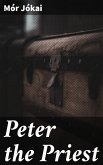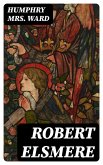In "Peter the Priest," Mór Jókai delivers a rich tapestry of narrative that intertwines themes of faith, sacrifice, and the plight of the common man during a tumultuous period in Hungarian history. Jókai's signature Romantic style is evident in his vivid characterizations and eloquent prose, drawing readers into the emotional depth of his protagonist, Peter, who grapples with spiritual and moral dilemmas. Set against the backdrop of societal upheaval, the novel explores the interplay between personal conviction and societal expectation, rendering it both a poignant character study and a reflection on the Hungarian national identity of the 19th century. Mór Jókai, often referred to as the 'Hungarian Victor Hugo,' was deeply influenced by his environment, particularly his experiences with the political struggles of Hungary. His extensive travels and interactions with diverse cultures, paired with his background in law and journalism, informed his understanding of the human condition. Jókai's literary career flourished during a time when Hungary was seeking its identity, and his works often underscore the tension between tradition and progress, which is poignantly illustrated in "Peter the Priest." This novel is highly recommended for readers interested in literary works that delve into the complexities of faith and morality. Jókai's exploration of personal and collective identity resonates powerfully, making this book not only a significant contribution to Hungarian literature but also a profound and engaging read that encourages reflection on one's values and beliefs.
Dieser Download kann aus rechtlichen Gründen nur mit Rechnungsadresse in A, B, BG, CY, CZ, D, DK, EW, E, FIN, F, GR, H, IRL, I, LT, L, LR, M, NL, PL, P, R, S, SLO, SK ausgeliefert werden.









